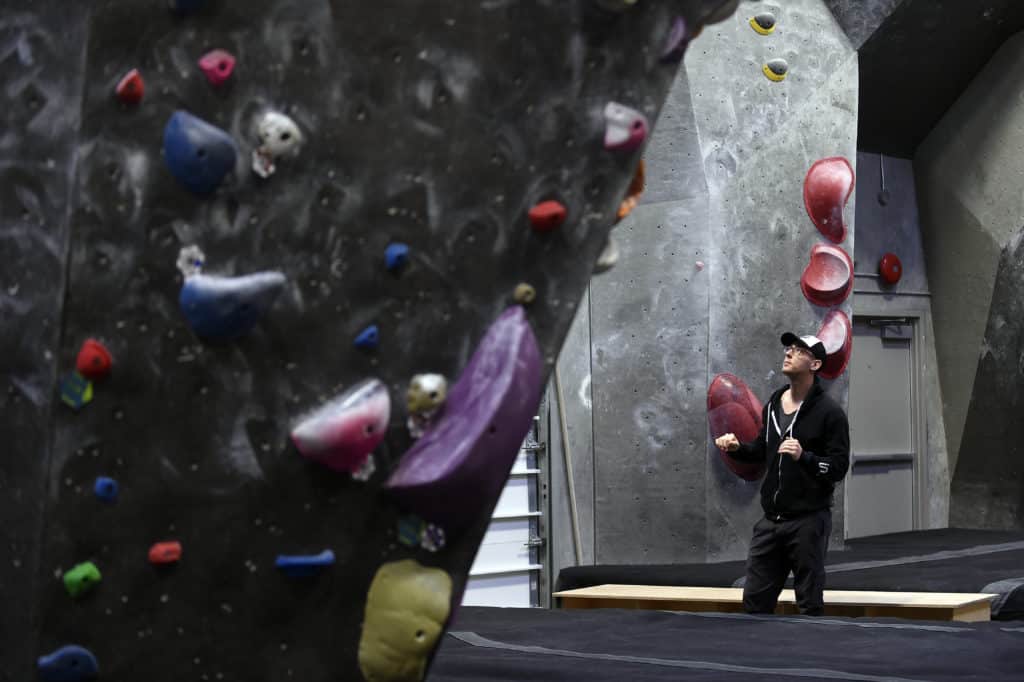Is climbing good for your mental health?
Graham Haber | August 27, 2019
Problem solving, endorphins, getting and feeling strong, time with friends, likely time spent outside, and more… Really, what’s not to love about climbing?
There have been many studies showing activity and exercise can be beneficial for your mental health, but climbing specific research hasn’t been too extensive. Recent research does show, though, that it may be harder to argue that climbing isn’t beneficial for depression and your mental health.

Researchers, including Katharina Luttenberger(1), have been investigating the effects of therapeutic rock climbing on the symptoms of depression for years and the growing evidence leans strongly in favour of climbing benefitting your mind! In 2018, a group(2) conducted a randomized controlled trial looking at the effect of an 8-week group bouldering psychotherapy intervention on the symptoms of depression, while controlling for physical activity. This group found a significant reduction in participant’s depressive symptoms after they completed the 8-week intervention, with a medium effect size for reduction in depression. These positive responses continued 8 and 16 weeks after the trial as well which means that indoor bouldering may be an effective treatment for depression.

So what is it about climbing in particular that makes it so good for our mental health? The exact mechanisms at work here are less clear than the therapeutic benefit itself, but there are a few unique things about climbing that might explain how it could help with depression:

Climbing is inherently mindful
While climbing, the climber’s brain is focused on what their body is doing and feeling. This means that the attention isn’t on the thoughts running through the climber’s mind, but instead on their physical experience. This can lead to improved emotional regulation(3).

Rock climbing is goal oriented
Whether it be reaching one hold further than before, or completing your project, there is lots of opportunity for goal setting and goal achievement in climbing. The success felt when completing a goal generally fills you with positivity, an increased sense of capability, feelings of accomplishment, and can help build self-esteem. Additionally, there’s always something for everyone, and there are attainable goals for climbers of all abilities.

Rock climbing requires complex motor coordination
There is research that demonstrates activities requiring high levels of motor coordination have a positive effect on cognitive control in older adults(4).
Climbing can be an intensely emotional experience.
Survey research has shown that climbers may experience intense feelings of pride, joy, fear, disappointment, and desire while climbing(5). On the other hand, people experiencing depression often struggle to feel emotions other than those associated with their depression, so for them, climbing might be particularly helpful.

Climbing builds relationships.
Bouldering specifically is highly collaborative as participants working on the same problem sit around and talk about how they do each move. Trust can also play a big role in bouldering! Trusting your spotter, just as in sport and trad climbing you need to trust your belayer. Strong relationships are a protective factor against many mental health challenges.

With all that said, climbing has some pretty strong arguments for why and how it can be beneficial for your mental health. It’s things like this that make our love for climbing grow even stronger (it’s also pretty darn fun and we have an awesome community around us)! How has climbing affected you positively?


